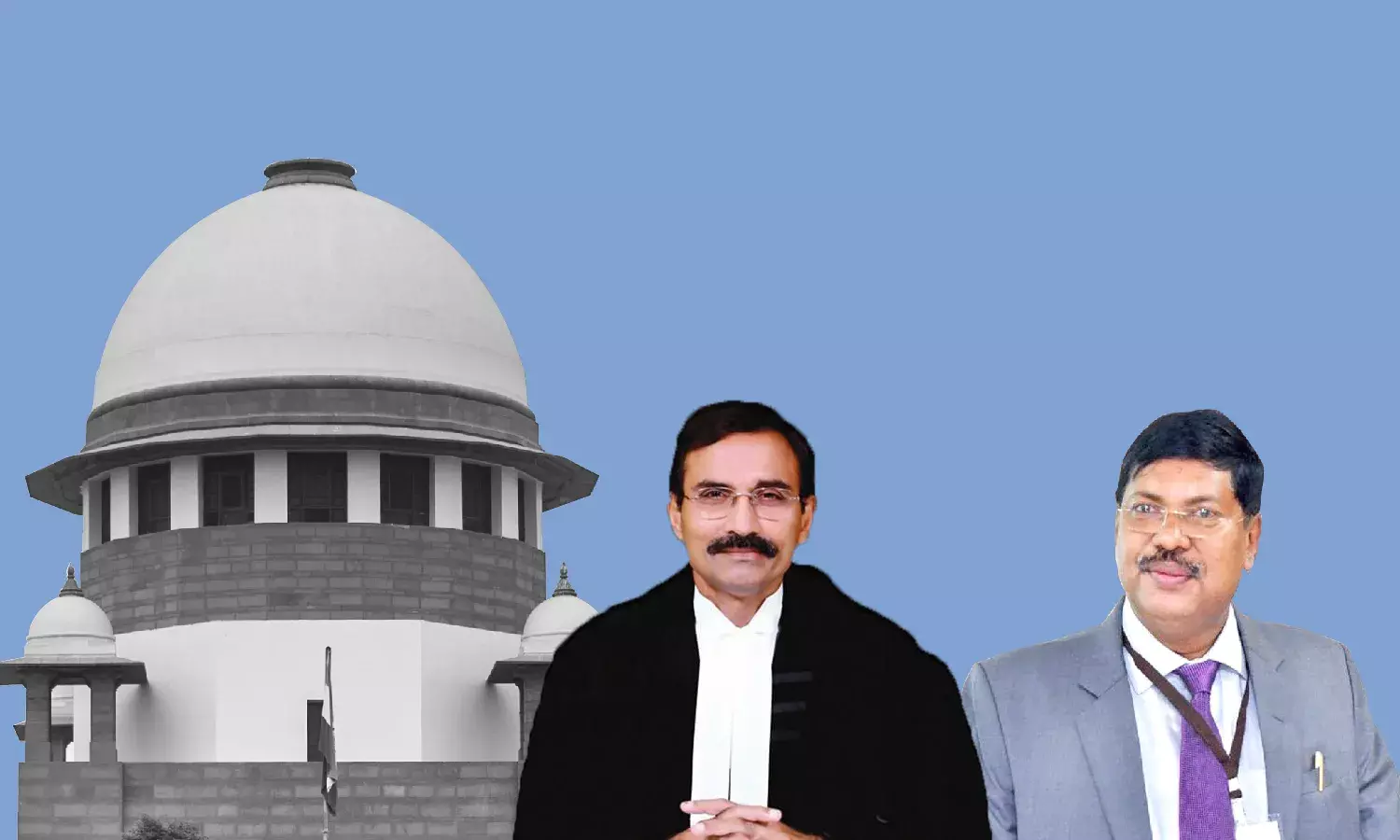Repeated Reservation Can Be Granted To A Category Before Completion Of Rotation: Supreme Court Interprets Maharashtra Mayor Reservation Rules

The Supreme Court set aside a Judgment of the Bombay High Court and held that the Courts have a duty to read a statute as a whole and that one provision of a statute has to be construed with reference to other provisions so as to make a consistent enactment of the whole statute. A Division Bench, comprising of Justice L. Nageswara Rao and Justice B.R. Gavai elaborated on interpretation of statutes while interpreting the Maharashtra Municipal Corporations Act, 1949 and the Maharashtra Municipal Corporations (Reservation of Offices of Mayors) Rules, 2006.
In a Writ Petition filed before the Bombay High Court, it was contended that from 2003 onwards, the Office of Mayor in the Dhule Municipal Corporation had been reserved for Backward Classes, but not for the Schedule Caste (SC) category. The Division Bench of the High Court, while interpreting sub-rule (2) of Rule 3 of the Maharashtra Municipal Corporations (Reservation of Offices of Mayors) Rules, 2006 (Rules) and relying on a judgment of Karnataka High Court, namely M. Abdul Azeez v. State of Karnataka and ors., held that the Office of the Mayor for the Dhule Municipal Corporation was reserved for Backward Class once, reserving the same again for the Backward Class while it had never been reserved for Scheduled Caste, amounted to a violation of rotation policy. Aggrieved by this, councilors belonging to Backward Class and by the State Government, approached the Supreme Court.
The Apex Court referred to Article 243T of the Constitution and noted, "Perusal of Clause (1) of Article 243T would reveal that it mandates the State to reserve seats for Scheduled Castes and Scheduled Tribes in every Municipality." Furthermore, the Court referred to Section 19 of the Maharashtra Municipal Corporation Act, 1949 which provides for the election of the Mayor and Deputy Mayor from amongst the Councillors in the Corporation. "It could thus be seen that sub-section (1A) of Section 19 of the said Act provides that there shall be reservation for the office of the Mayor in the Corporation, by rotation, for the Scheduled Castes, the Scheduled Tribes, Women and the Backward Class of Citizens, in the prescribed manner.", the Bench noted.
The Court held that the Rules are in consonance with Section 19(1) of the Maharashtra Municipal Corporation Act, 1949, as well as Article 243T of the Constitution. "It is thus clear that the scheme of Rules which is in tune with Section 19(1A) of the said Act and in turn with the constitutional provision under Article 243T, is to provide reservation to the Scheduled Castes and Scheduled Tribes in proportion to the total population of the Scheduled Castes and Scheduled Tribes in the Municipal Corporation areas.", observed the Court.
The Court, while construing the Rules, concluded that sub-rule (2) of Rule 3 of the said Rules has not been "happily worded" and that it was up to the Courts to examine its legal position with the principles of statutory interpretation. To this effect, the Court referred to six previous judgements and held, "It could thus be seen that it is more than well settled that it is the duty of the Court to construe the Statute as a whole and that one provision of the Act has to be construed with reference to other provisions so as to make a consistent enactment of the whole Statute. It is the duty of the Court to avoid a head-on clash between two sections and construe the provisions which appear to be in conflict with each other in such a manner so as to harmonise them." The Court further observed, "It is further equally settled that while interpreting a particular statutory provision, it should not result into making the other provision a "useless lumber" or a "dead letter". While construing the provisions, the Court will have to ascertain the intention of the law-making authority in the backdrop of dominant purpose and the underlying intendment of the Statute."
The Bench found that the interpretation of the Rules, as done by the High Court of Bombay, would neither make the said rules "workable", nor give effect to the legislative intent. The Court also noted that the Rules that fell for interpretation before the Karnataka High Court, in the aforementioned case, had been different from the ones which fell for interpretation of the Bombay High Court.
The Judgement of the Division Bench of the Bombay High Court was set aside and earmarking of the post of Mayor for candidate from Backward Classes was upheld.

